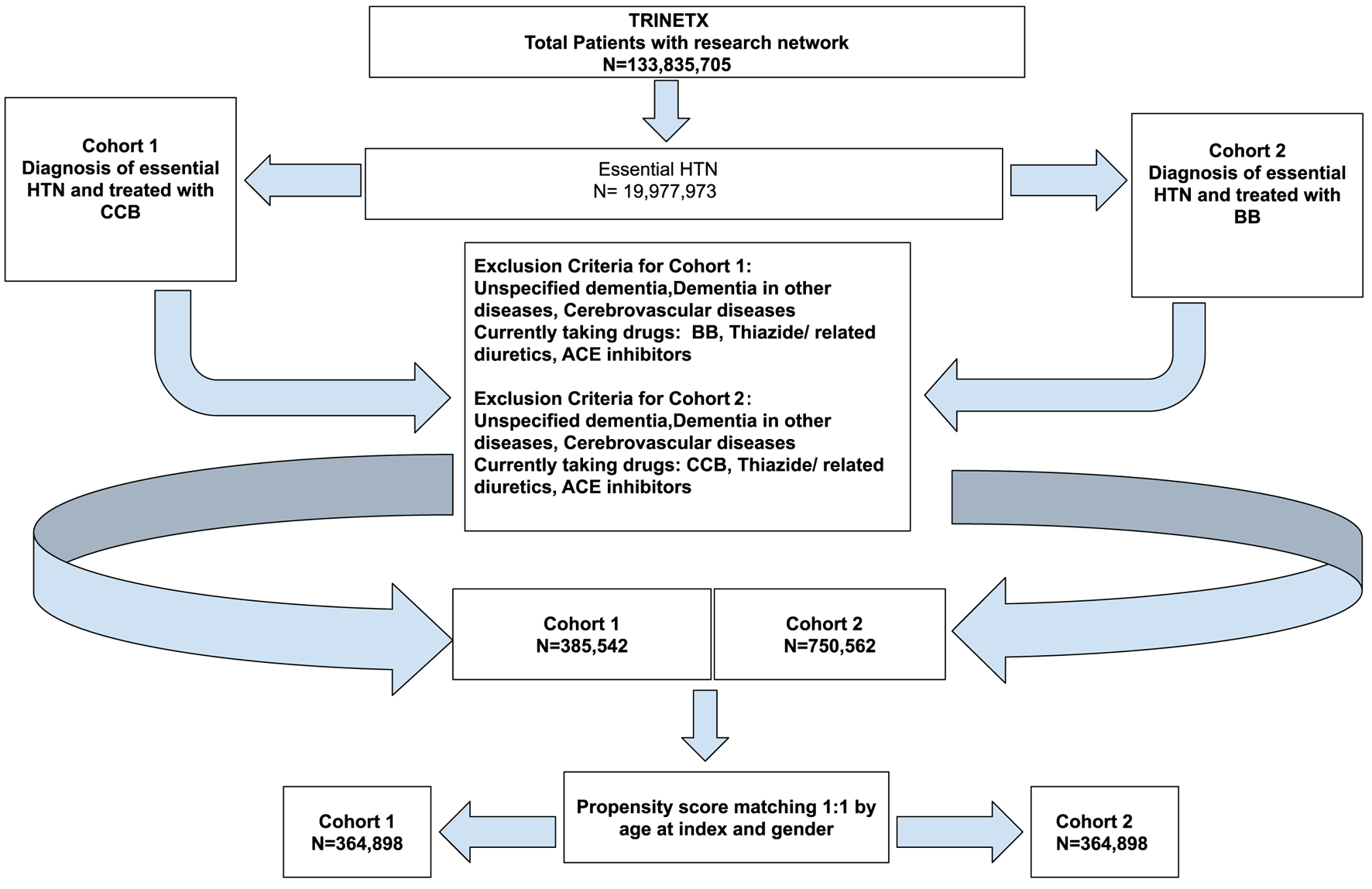Neuroprotective Effects of Calcium Channel Blockers on Parkinson’s Disease Development: A Population Cohort Study
DOI:
https://doi.org/10.14740/jnr1023Keywords:
Retrospective cohort study, Parkinson’s disease, Hypertension, Calcium channel blockers, Beta-blockers, Neuroprotective effectsAbstract
Background: Parkinson’s disease (PD) is the second most common neurodegenerative disorder. There have been studies showing that hypertension (HTN) has an increased risk for PD as well as numerous studies published which show an overall neuroprotective effect on the prevention of PD. Although this correlation is established, the potential role of antihypertensives, especially calcium channel blockers (CCB), in preventing PD has not been studied extensively in the USA with a diverse set of racial groups.
Methods: This study employed a retrospective cohort study using the TriNetX database, investigating the incidence of PD in hypertensive patients from a wide variety of racial groups prescribed CCBs compared to those receiving beta-blockers (BBs).
Results: In this large cohort study, 364,898 patients were included in each group for the final analysis. The analysis revealed that the risk of developing PD in the CCB group had a risk ratio of 0.3, while in the BB group, it had a risk ratio 0.4. The risk difference between the CCB and BB groups was -0.1 (95% confidence interval (CI): -0.001, -0.001). This indicates a statistically significant protective effect of CCBs on the development of PD.
Conclusion: These results suggest that CCBs provide a slight protective effect against developing PD. Further research may be warranted to explore underlying mechanisms and validate these findings.

Published
Issue
Section
License
Copyright (c) 2025 The authors

This work is licensed under a Creative Commons Attribution-NonCommercial 4.0 International License.







